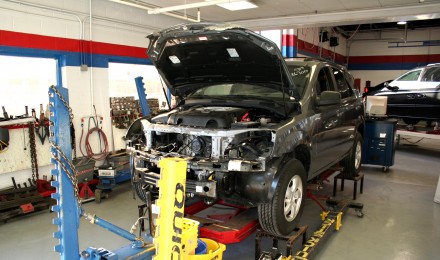Several situations justify renting a car. Maybe you’re planning a vacation or business trip and need to rent a car at the airport. Then again, maybe your personal vehicle is out of commission for a few days and you need transportation. Renting a car can get expensive, and for this reason, many people choose the smallest, most economical car. But even if you find a vehicle with a low daily rate, the customer service rep may offer rental car insurance at checkout, which can drive up your final price.
Rental car insurance can cost as much as $20 to $40 a day, depending on the type of car. And despite this hefty price, many people are quick to accept coverage. It can cost hundreds or thousands of dollars to fix the smallest damage to a rental car, and most car renters do not want to be financially liable for damages. For these individuals, paying an extra $100 or $200 is the price for peace of mind.
Car rental companies push rental car insurance, and some companies go as far as relating horror stories to scare renters into adding coverage. However, rental car insurance is not necessary for every car renter, and there are sound reasons to decline this coverage.
1. Personal Auto Insurance Policy Covers Rental Cars
If your personal auto insurance policy covers rental cars, rental car insurance is unnecessary. In this case, damages that occur to the rental car will fall under your personal policy. Pay your standard deductible and your auto insurance company will pay the vehicle repairs.
Do not assume that your personal auto policy automatically covers rental cars. Policies differ, thus it is best to contact your auto insurance provider and ask for specific coverage information. And if your policy does cover rental cars, ask about limits. For example, the policy may cover repairs to the rental vehicle, but not the loss of rental income, the loss of value to the rental car or administrative fees charged by the car rental company.
2. Credit Card Offers Auto Rental Coverage
Become familiar with your credit card perks before reserving a car rental. If your credit card includes rental car coverage, purchasing supplementary insurance from the car rental company may not be necessary. To benefit from this perk, you have to book and pay the full car rental price with the credit card and be the primary renter. In the event of an accident, your credit card company will cover your personal policy’s deductible, towing fees, plus any loss of rental income charges. Additionally, if the cost to repair the rental car exceeds the coverage offered by your auto insurance company, you credit card company will pay the difference.
Like your auto insurance company, there are limitations. For example, rental coverage offered by your credit card may not cover expenses associated with loss of value to the rental car, as well as personal liability charges. Contact your credit card company to see whether car rental coverage is offered, and inquire about coverage and limitations.






